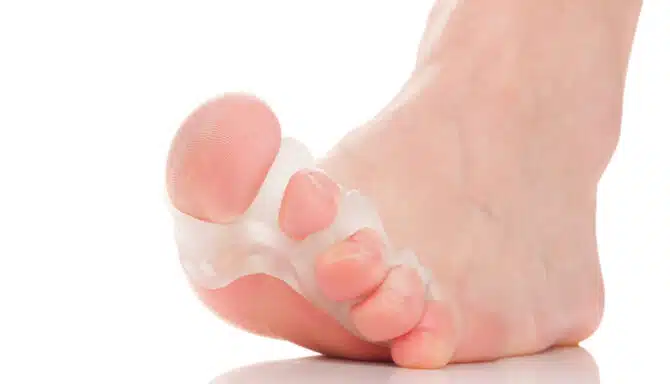Foot health can be an afterthought until pain or discomfort sets in. At that point, you’re left trying to treat a foot condition rather than taking a more preventative approach. One common condition is plantar fasciitis, which causes pain in the heel and sole. Plantar faciitis is the most common cause of inferior heel pain in adults
In this comprehensive foot health guide, we explore the ins and outs of plantar fasciitis, from understanding its causes to preventive measures and effective treatments.
Understanding plantar fasciitis

Plantar fasciitis surfaces when the band of tissue supporting the foot arch, known as the plantar fascia, becomes inflamed. This can stem from various factors, including improper footwear, overuse, or certain medical conditions. Knowing and recognizing the symptoms and early signs can be crucial for effective management.
Prevention
Proper footwear selection

Shoes with arch support and cushioning are essential for healthy feet. In fact, insufficient arch support is one of the most common causes of plantar fasciitis. You can also consider custom orthotic inserts or shoe inserts like Superfeet for additional support.
Foot exercises and stretches
Regularly perform exercises to strengthen the foot and calf muscles and incorporate stretching routines to maintain flexibility.
Gradual activity progression

Avoid sudden increases in physical activity, and take occasional rest days to allow your feet to recover. Rapid increases in intensity can overload the heel and plantar fascia. Instead, take a cautious approach to building up volume, and reduce the intensity if you notice any discomfort.
Treatment strategies
Supportive Footwear
Insufficient arch support is one of the most common causes of plantar fasciitis. Selecting footwear with strong arch support and a good heel counter will go a long way toward alleviating plantar fasciitis. symptoms.
Rest and ice
If you have acute (sudden, short onset) plantar fasciitis, give your feet the needed rest, and use ice to reduce inflammation and alleviate pain. Rest and ice are critical parts of the RICE method – rest, ice, compression, and elevation. Combining all four elements provides a comprehensive and holistic approach to recovery. Note: ice is not recommended after the initial onset.
Physical therapy
Consult a chiropodist for targeted exercises and manual therapy techniques to improve foot strength and flexibility. For example, at home, you can perform a calf and arch stretch using a towel. To perform the towel stretch, place a towel around your foot while holding on the ends with your hands. Then use the towel to pull back on foot for 30 seconds. Do this 3 times with 30 seconds of rest in between. You can keep the towel near the bedside so you can perform the stretch before going to sleep and before taking your first steps in the morning. Read more about effective lower leg exercises for plantar fasciitis in this guide.
Orthotic inserts
Consider using custom orthotic inserts or Superfeet to support and relieve pressure on the plantar fascia.
Anti-inflammatory medications
When necessary, over-the-counter or prescription medications can help manage inflammation and pain.
Shockwave Therapy
If your plantar fasciitis is chronic (i.e.: persisted longer than 3-6 months), you may be a candidate for shockwave therapy. Shockwave therapy is a non-invasive, highly effective treatment where soundwaves are applied to the affected area. This stimulates your body’s inflammatory response to heal the plantar fasciiits.
Lifestyle modifications
Weight management

A stable, healthy weight reduces stress on the feet. Combine a balanced diet with regular exercise. For instance, foods rich in vitamin C are great for our foot health, as this superstar nutrient can fight foot pain caused by inflammation.
Proper foot care
Problems with our toenails and skin on the feet can worsen over time and ultimately affect our gait. To prevent this, practice good foot hygiene, inspect your feet regularly for signs of issues, and address any concerns promptly.
Long-term management and recovery
Consistent follow-up care
Regularly check with healthcare professionals to monitor your progress and adjust treatment plans. Consider booking an annual foot assessment to determine if your foot needs have changed at all, or if there are any issues that need addressing.
Surgical options
In more severe cases, surgical intervention can be an option. Work closely with a healthcare professional for a comprehensive approach to rehabilitation and recovery. It’s important to note that conservative treatments, like proper arch support, rest, exercise, and other preventative measures, are often sufficient to treat plantar fasciitis. Surgery is generally seen as a last resort.










